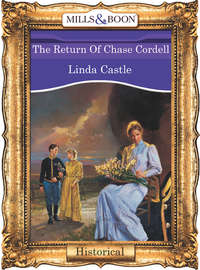
Полная версия
Abbie's Child
Willem scowled. This woman’s miserly ways were going to eat up most of his pocket money. Between her and the Pinkertons he’d be working for Otto Mears until he was too bent and broken to swing a pickax or had vision enough left to light a fuse on a stick of dynamite. He clenched his jaw against the anger and futility that flooded over him.
He dug deep into his pockets. He’d be lucky if he could afford supper after this, much less a haircut. His stomach growled when he placed the coins in her palm. Eating was becoming a luxury—one he indulged in less frequently as his search for Moira stretched on and he’d been compelled to hire the Pinkertons.
She accepted the money and pulled the open ledger toward her to read his name aloud.
“Well, Mr. Willem Tremain, since you’re now a paying guest, would you like to sample some of my cooking? You can judge for yourself whether it’s worth the price.”
He looked at her suspiciously and wondered if he’d have to mortgage his soul for the privilege.
She chuckled. A deep, throaty sound filled his ears. It sent odd sensations careening around his shoulders and down his body. Willem decided the effects of hunger and the thin air at this unholy altitude were addling his judgment.
“It’s on the house, Mr. Tremain,” she added dryly.
He felt heat flood his face above the thick growth of his beard. She had so easily interpreted his thoughts on the subject it caught him unaware. He coughed and tried to hide his embarrassment.
“I’d like that,” he finally managed to grate out.
He looked up at her and saw her swipe at the strand of loose hair near her face. Her hand left a large smudge of flour on her nose. He had the silly urge to reach up and wipe it away, but he stopped short. Nonetheless, he could not tear his eyes away from the blemish on her skin. He unconsciously rubbed the side of his own nose while he studied her face. There was a fine smattering of freckles on her aquiline nose and across her heat-flushed cheeks. He continued to stare while he absently wiped the nonexistent flour from his own face.
“What is it?” Her voice broke the spell he’d woven around himself.
Again he felt fire rise under the three-week stubble along his jaw. “Your—nose,” he said haltingly.
“What?” Both eyebrows shot upward toward a heart shaped hairline.
“You…have flour on your nose.” He extended his hand toward her face, halted abruptly, then pulled it back. Finally his hand shot out to brush it away. Her eyes widened in shock—or was it fear? Willem realized he’d overstepped the bounds of propriety.
“I’m sorry.” He wondered if he was coming undone; this impulsiveness was not like him.
She was looking at him with genuine amazement and perhaps some trepidation.
“Think nothing of it.” She shot one more half-suspicious look at him. He could see wariness in the stiff set of her shoulders. “If you want something to eat, come into the kitchen,” she said tightly.
Willem bent his tall body to pick up his valise, feeling dazed and bewildered. He was sure it must be a combination of fatigue and hunger.
“Leave it. Nobody will bother it.” She waved her hand and indicated he should follow her.
He obediently left his valise, containing his every earthly possession, sitting unguarded on the Chinese patterned rug in front of the desk. Willem followed the swish and sway of the woman’s dress into a room of surprisingly large proportions. The smell of spices and yeast sent his empty gut into noisy protest again.
“Here, try one of these.” She thrust a chipped china plate, heaped with golden-crusted spirals, toward him. Each roll was larger than his own doubled fist and slathered in butter and honey.
Willem wiped his palm down the front of his trousers and picked one up. He sniffed the rich aroma before he took a bite. The roll melted in his mouth. A blending of sweet cinnamon and the heady, robust taste of yeast bread trickled down the back of his throat.
“Good?” She expectantly raised her brows.
“Mmm.” He allowed himself to savor the taste, ignoring the sound of his too-empty stomach demanding more. He’d not had the means to pay the Pinkertons and eat, too, so Willem had done what was most important to his survival. He’d gone without food for two days on his journey to Guston.
“Now that you have sampled my cooking, I suppose I should introduce myself.” Their eyes met, and he clearly saw the chill of apprehension in hers.
She was the one who now rubbed her palms across her flour-dusted apron. She thrust her hand toward Willem. He shoved the last piece of roll in his mouth and grasped her clean fingers with his sticky ones.
Abigail craned her neck to look up at him. He was over-large and lean beneath the rough clothes. His jaw was covered with dark hair only a shade paler than the long strands peeking from under his immigrant’s cap. Only his eyes were unusual. They were blue—and held a raw hunger that sent a frisson of apprehension snaking through Abigail. She wasn’t sure why, but the man’s eyes made a knot in the middle of her stomach.
“I am Abigail Cooprel. The widow Cooprel. Welcome to Guston, Colorado, Mr. Tremain.”
Chapter Two
“Pleased to meet you,” Willem managed to say around the mouthful of roll. No sooner had he touched her hand than Mrs. Cooprel sucked in a deep breath and snatched it away. He frowned at her undisguised concern, then he wondered why he gave it a second thought, why it should even matter to him.
“Oh, my bread!” She grabbed two thick squares of burlap stuffed to plump proportions and flung open the door of a big black cast-iron stove. A blast of heat filled the kitchen along with the smell of fresh bread. Willem saw beads of sweat appear on her forehead.
“Can I help?” It was a stupid question, but he felt like a slackard, sitting idle while the woman whirled busily around the room.
“If you could put those cooling racks on the table…it would be a great help.” She nodded in the direction of three large wire stands leaning against a wall.
“These?” Willem asked as he picked them up. He felt increasingly awkward floundering in the woman’s domain.
She pulled a golden-domed loaf as long as his forearm from the darkness of the oven and turned toward him. Willem thought he’d surely died and gone to heaven when the fragrance filled the room. The beast in his belly awakened with a deep growl. Willem groaned and laid the racks on a scrubbed pine table more than ten feet long.
With a deft maneuver of her wrist she dumped the bread out of the hot pan and returned to retrieve another pan from the oven.
“This is where we take our meals,” Abigail told him while she lined up a dozen steaming loaves to cool. When she dumped the last loaf on the rack she shoved the oven door closed with a backward kick of her high-buttoned shoe. Then she brought a huge scarred wooden bowl to a thick chopping block in the middle of the kitchen. She removed the flour sack that covered it and dumped out the lump of soft, swollen dough. Her fist hit the fluffy center with a dull whoosh.
“Here in the kitchen?” With fascinated interest Willem watched her pound and manipulate the dough.
“Yes. Only Sunday dinner is taken in the dining room. I don’t have room for all my tenants in there.” She looked up. “Most of the men who room here spend Saturday night and most of Sunday on Blaine Street,” she explained with a definite pucker of her brows.
Willem shook his head in confusion. “I’m new in Guston. I don’t know of Blaine Street.”
“Blaine Street is the sporting section of Guston.” Abigail smiled blandly. “Women of easy virtue, gambling and Lord only knows what else are available there. I’m sure you’ll find it soon enough.”
“I doubt it.” Willem had little interest in the topic—or the widow’s hasty opinion of his moral beliefs.
He watched her divide the dough into clover-shaped balls and dip them in melted butter. She lined up row after row of ivory dough on a wide metal sheet and popped them into the waiting oven.
“Aren’t you a sporting man, Mr. Tremain?” she asked abruptly.
“No, I’m not.” Willem told himself the woman needed to ask such questions to assure her own peace of mind, and he tried not to take offense. “You’ll not have cause to worry on that account, Mrs. Cooprel. I don’t gamble—you’ll get your rents on time.”
She looked up and studied his face for a long moment. He caught a glint of disquiet, or perhaps it was fright, in her eyes. She dropped heavy lashes to shut out his scrutiny.
“Then you’re welcome to have Sunday dinner with us in the dining room,” she offered haltingly.
Mrs. Cooprel spread out another section of dough. She spooned cooked apple slices, cinnamon and a generous portion of butter into the center and began to roll up the dough.
Willem leaned against the hand pump and watched her. He didn’t know why he lingered here. Maybe it was the warm atmosphere of the kitchen or the homey smells or the fact that his belly was scraping against his backbone that made him wait like a hungry cur needing a handout.
“You are welcome to try more of those.” Abigail nodded toward the plump cinnamon rolls in a manner that made him wonder if she had read his mind.
“This is my regular baking day. I always make more than we need.” She seemed torn between the urge to feed him and her obvious desire for him to leave.
“Thanks.” Willem took another plump roll and relished each delectable bite. The widow was a kind, meddlesome sort, he decided while he ate the roll. He regretted his earlier comment about her greed.
She placed the plank of whatever she had just created into a greased pan. He saw her glance at him curiously from time to time.
“Are you a single man, Mr. Tremain?”
The abrupt question surprised him, but he again told himself the widow would have a need to protect her reputation. He forced himself to treat the question as casually as it had been asked.
“No. I have a wife.” He continued to nibble on the roll while he watched her. It might’ve been his imagination but he could have sworn that the widow Cooprel visibly relaxed when she learned his marital status. That puzzled and intrigued him.
She placed the pan aside and covered it with a clean flour sack. Then she poured coffee into two blue-speckled cups and sat down at the long harvest table.
“Join me?” she asked, with her eyebrows lifting into slender arches. Again Willem had the feeling she had taken more interest in him since she’d learned he was not single-just the opposite of what he would have expected from a widow. Every unmarried female this side of Denver was looking for a husband. Any sort of husband.
Willem stepped away from the hand pump where he’d been leaning and pulled out a chair opposite the widow, then sat down and took a sip of the hot liquid. The coffee was fresh and strong. Exactly the way he liked it and very seldom had.
“After tasting your cooking I imagine you have men lined up at your door with offers of marriage,” Willem said wryly.
“I have no desire to remarry.” She shoved the cinnamon rolls closer. “It’s nice to see a man with a healthy appetite. Makes all the work worthwhile.” She sipped her coffee and watched him over the rim of her cup. Will ignored her effort to redirect the conversation.
“Ever? You’re a young woman to be making such a permanent decision.”
“Perhaps, but I know my own mind.” She concentrated on her cup, and he knew the subject was closed.
He searched for a less personal topic to take up the deafening silence in the room. The woman was certainly different. She had a cool reserve about her, and a protective veil seemed to shield her blue eyes.
“You do this every week?” Will told himself he should leave, but he found himself trying to keep the conversation going.
She looked up warily, took a deep breath and nodded.
“Yes. Monday is baking day. Tuesday is cleaning and Wednesday is laundry.” She sipped her coffee and flicked a gaze over his road-weary and travel-stained clothes. “I’m sorry I don’t do washing for my guests, but there is a fine Chinese laundry right next to the barber and bathhouse on Eureka Street.”
Willem chuckled at the none-too-subtle hint. The sound surprised him. He tried to remember how long it had been since he’d heard the sound of his own laughter, but he couldn’t recall it.
“Mrs. Cooprel, it has been a while since I had an opportunity to enjoy a bath or clean clothes. I thank you for pointing me in the right direction.” He saw himself through her eyes and felt more uncomfortable for it.
“I’m sorry, Mr. Tremain. I only meant—” She ducked her head, and he saw a light wash of color on her cheeks. A long fringe of lashes, sun lightened at the tips, brushed across her high, smooth cheekbones. “I’ve been here so long I’ve begun to pick up some peculiarities in my habits. I think it must come from spending so much time in the company of men. Your gender is more open and honest than mine, and sometimes I forget my manners. Please forgive me.”
“How long have you been here?” He wondered if she might have been here long enough to know something about Moira.
“My husband brought me to Colorado in 1881.” Abigail stiffened.
“Gold?” He took a sip of coffee.
“At first I thought it was, but now when I look back I think Carl had a longing for adventure, not a thirst for gold.” She ran her index finger around the rim of the cup.
“How did he die, if you don’t mind me asking?” Willem was mentally counting the years in his head. The time could be about right—Moira’s trail had taken him in three different directions, but when he hired the Pinkertons a year ago, they managed to track Moira here. Then she vanished without a trace. Looking through the gold camps around Silverton, the Pinkertons had spent every cent Willem could earn. Willem had finally decided to have a look for himself. He could not give up the quest.
“It’s been a long time since Carl died. I don’t mind talking about it anymore. There was a cave-in at our claim. Carl and the mule were killed instantly.” She drained her cup and rose from the chair. “I don’t want to be rude, Mr. Tremain, but I have the evening meal to prepare.”
She said the words lightly enough but Willem knew very well she wanted him out of her kitchen where she would not feel obliged to entertain him. He brushed crumbs from the cinnamon roll off the front of his woolen shirt and forced himself to smile.
“Thank you for the coffee and rolls. Which room is mine?” he asked when she plunked both their cups into a metal washtub and grabbed the hand pump. The dry, sucking sound of the pump drawing water made an answer impossible for a moment. He waited patiently until water streamed from the spout. When the pan was full she turned to Willem.
“You will be in room number twelve. It’s on the third floor. I hope you don’t mind the stairs.”
“No, that will be just fine.” Willem lingered in the door-way for a moment. “There seems to be a lot of activity in town…is there something special going on?”
“Yes. We are celebrating Colorado’s anniversary of a dozen years of statehood.”
“A dozen years?” he asked. “That’s an unusual number of years to celebrate.”
“We Gustonians never miss any excuse to have a picnic. Summers are short here—we take our pleasures when we can. We have a town band and there will be fireworks this year.”
“I see. Thank you for the coffee—and everything, Mrs. Cooprel.” Willem turned and left the huge sunny kitchen. He picked up his valise, grabbed the key labeled 12 from the hook on the wall and strode toward the staircase. The news of a shindig did little to lift his flagging spirits.
He gripped the banister with more force than necessary when he thought of how many years he’d been searching in vain for Moira.
If you’ve learned anything these years, you great fool, have you not at least learned a little patience? He shook his head in amazement at his repeated failings and went in search of his room.
Chapter Three
Willem paused on the second-floor landing, where he was tempted to slump into an inviting rocker by a potted fern. A one-eared ginger tom raised its head and hissed menacingly from the pillowed seat. Will backed off. The old cat yawned, and he saw a missing tooth. The cranky tabby was secure in its ability to defend its territory. Will had no desire to battle the old gladiator for a temporary seat. He turned and trudged up the last flight of stairs. By the time he reached the third floor the idea of going in search of a barber had lost all its appeal. He found the door with a neat, handmade 12 tacked on the middle.
“Mrs. Cooprel’s work, I see.” Will shook his head. “Is there anything the widow does not put a sign on?” he asked nobody in particular.
Willem unlocked the door. The room was clean and tidy—just what he had expected. A quilted spread in a double wedding ring design brought him up short at the threshold. Memories of Moira stitching a similar one assaulted him. Willem threw his valise on the bed to block out the image. He felt suffocated while he strode to the window, covered with hand-tatted white lace. He pushed the thin fabric aside and forced open the glass. Cool, clean air flooded the room. He inhaled great gulps of it and tried to clear his head of the haunting memories and guilt. Today had brought more forgotten images flitting through his head than the past six years altogether.
Willem leaned out the window and braced his forearms on the sash. Tall mountain pines, close enough to reach out and touch, spread green fronds toward the boardinghouse. A carpet of thick grass and bright clover sprinkled with columbines and daisies blanketed a large area around the house. Taut wires strung between railroad ties formed a long clothesline at one end of the verdant lawn. He could hear the noisy birds cackling inside a sturdy covered chicken coop on the other side. He looked west and saw a neat, well-ordered vegetable patch surrounded by a stake fence.
“I bet the deer and elk love the widow’s vegetables,” Willem muttered. A dish-faced Jersey cow with great solemn brown eyes looked up at him while she chewed her cud.
He scanned the grounds and located the privy. Around the side, toward a wraparound porch, a tall, fire-engine-red water pump had been installed above a trough fashioned from a massive hollowed-out tree trunk.
It had been long, bleak years since Willem had enjoyed the trappings of such ordered domesticity. The picturesque setting sent an arrow of self-condemnation and reproach shooting through him. He turned away from the window, unable to look at any more.
He shoved the valise to the floor and flopped onto the bed. The springs creaked under his weight while he adjusted his tall frame. The lumpy, narrow mattress felt as soft as a feather bed compared to the hard straw cots he’d become accustomed to since hiring the Pinkertons. He yawned and wished for a single night of peaceful sleep. As quickly, he cursed himself for the stupid fancy. Willem knew the ghosts from his past would never leave him in peace—and furthermore he knew he didn’t deserve any.
* * *
Abigail popped the last of the dinner rolls into the hot oven and rubbed her hand over her sweat-dampened fore-head. She was glad to see baking day nearly finished. The heavy coins in her pocket jingled and she found herself thinking about her newest boarder. She looked down at her own fingers and saw them trembling.
Is this how it will always be? she asked herself. Will I constantly be timid and afraid when a stranger comes to rent a room?
She thought back to the gray day of last winter, when Lars had forever changed her life—for the second time. He had come to her with a story so fantastic that at first she thought he was spinning a yarn for her amusement. But as the tears welled in the old man’s eyes, she finally faced the tiny questions that had forever nagged at her about Matthew. She forced herself to acknowledge what she knew was true.
Matthew was not her child. Not the child of her body. Abigail felt something on her cheek and wiped at it. Her fingers came away wet. She was crying again—crying for the daughter she had never known, crying for the woman who had died giving Matthew life, crying for herself.
She sniffed and squared her shoulders. There was no reason to be in such a state, she knew. Years had passed with no long-lost relative coming to claim Matthew. Why should any of that change? Yet, now each time some new boarder knocked at the door there was a moment of panic, a moment when Abigail knew today would be the day she would lose her child.
She sighed and tried to calm her nerves. Maybe she would feel better if Lars had not disappeared like a will-o’-the-wisp right after he’d confessed. She had been expecting him home any day. Surely he would not disappoint Matthew, they had attended every picnic celebration together since Matt was old enough to walk.
Abigail busied herself washing up the cups she and Mr. Tremain had used. Images of her new boarder swam before her eyes. He made her uneasy. His dark, probing eyes and manner sent shivers of dread up her spine. But why? Mr. Tremain said he had a wife, and if Abigail had inquired further, he probably would have told her he had a brood of dark-haired children, as well. He was just another man looking for a clean bed and a hot meal. There was no reason in the world this man should be any different than the others who had rented from her in six years.
She took a deep, calming breath and vowed to keep her imagination under tighter rein. Matthew was not the child of her body but he was the child of her heart, and nobody was going to show up out of the blue and take him from her. She simply had to go on as she had in the past and things would be just fine.
“Still, I’m glad that one’s got a wife,” she muttered while she rinsed the soap from the cups.
He had a way of looking at her that made tiny shivers run over her arms. She realized it was probably more her imagination than anything else, but Mr. Willem Tremain was different than other miners somehow—dark, lonely, driven in some way.
He frightened her. She shook her head and told herself she was just feeling gloomy. Matthew had been gone all day fishing and she was feeling his absence. She smiled and thought of his bright blue eyes and childish laughter.
Yes, that’s all it is. I’m just missing Matthew. She happily went about her chores—but the disturbing image of Willem Tremain’s handsome, brooding face never really left her in peace.
Choking darkness and a ton of rock crushing down upon him brought Will awake. He raked his palm over his sweatbeaded face and lay panting. He couldn’t remember where he was. Then reality flooded in. He remembered the widow’s blue-green eyes. He released the breath he hadn’t realized he’d been holding and slid his shoes to the floor.
Willem stretched and comprehended with profound astonishment that he had slept soundly, until just now. He frowned and puzzled over it. Then he decided it was because he’d fallen asleep in the middle of the day. Napping was a luxury a working man rarely indulged in—particularly one who had detectives on his payroll.
He shoved his bulk from the mattress and walked to the washstand. The pitcher was dry. He scowled and caught his reflection in the mirror above the stand. His eyes were hooded by dark lashes and eyebrows. His beard was thick and itched like the devil. He looked meaner than a catamount. It was easy to see why the widow found him so frightening.
He heard laughter and ribald language coming from somewhere in the yard. His curiosity beckoned him to the open window, where he leaned out to see what was going on.
A crowd of rough miners wearing heavier beards than the one he sported were stripped to their long johns at the waist. Their heavy woolen shirts flapped behind them like hen’s wings. Willem frowned and watched as a thick bar of soap was passed from one eager hand to the next. Each man put his head under the pump while one of his fellows pumped water over him. In turn they lathered themselves to a foam and repeated the process. Suds and water flowed over the edge of the trough and swirled down the rocky incline toward a flower bed of columbines. Willem was puzzled and intrigued. They appeared to be giving each other a thorough scrubbing at the hand pump. He’d never seen the like in any other gold camp. He decided to go downstairs and take a closer look at the unlikely spectacle.






